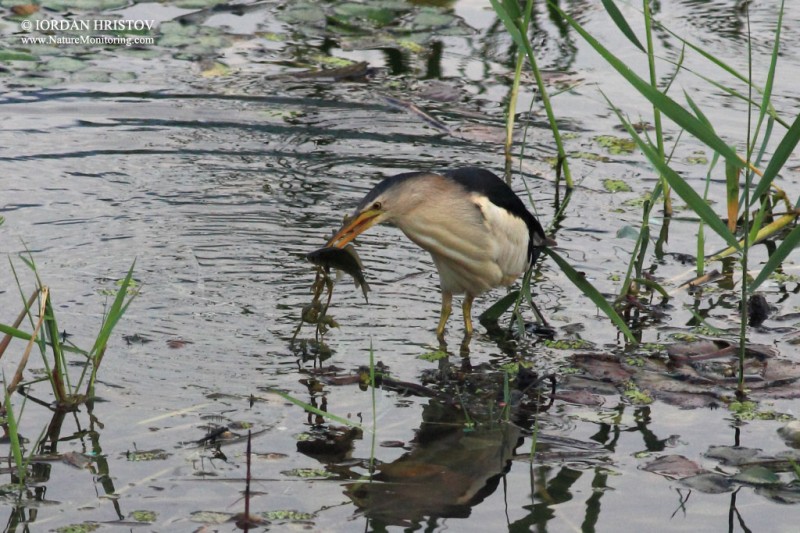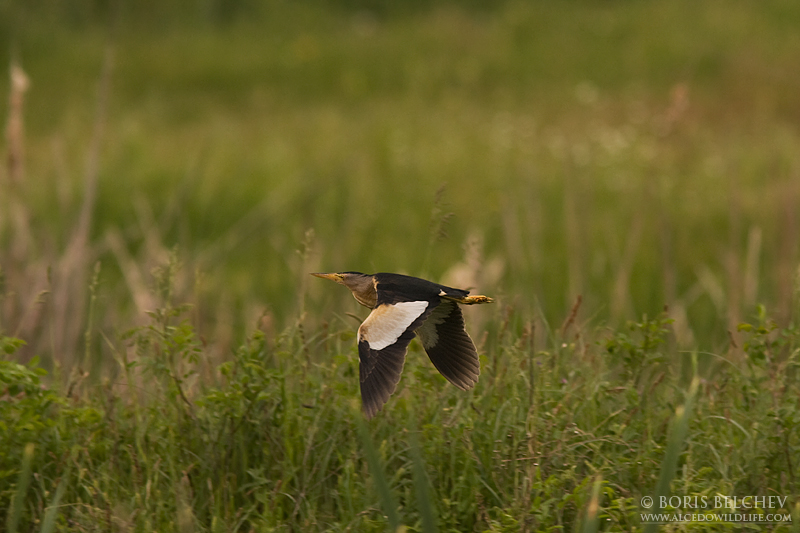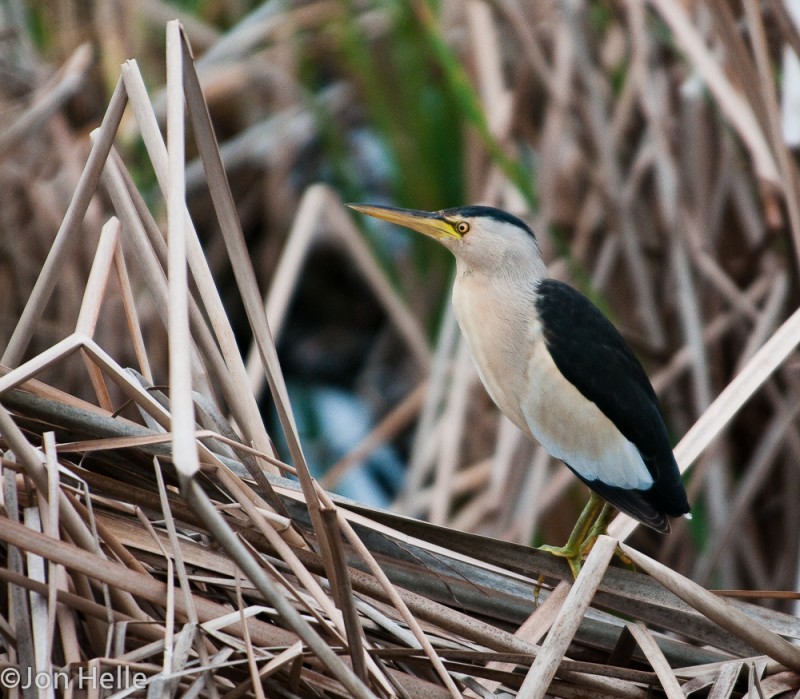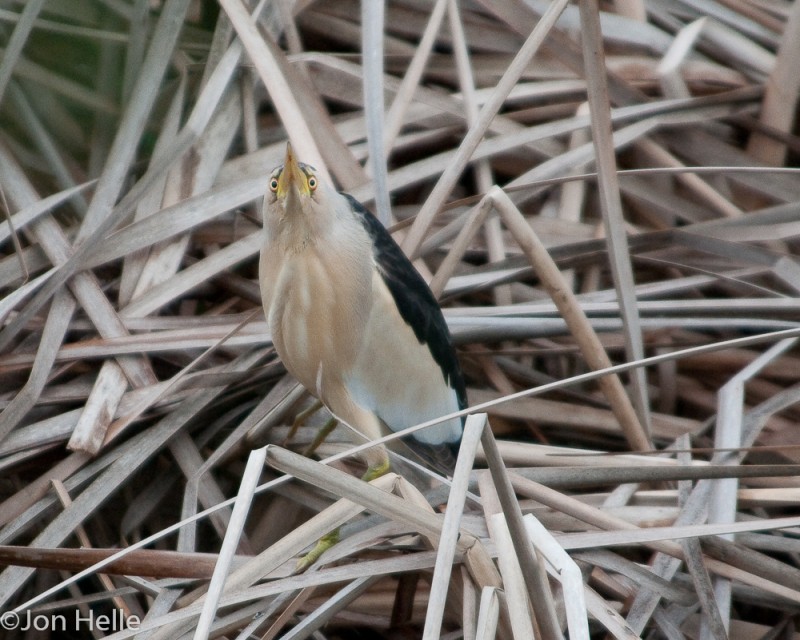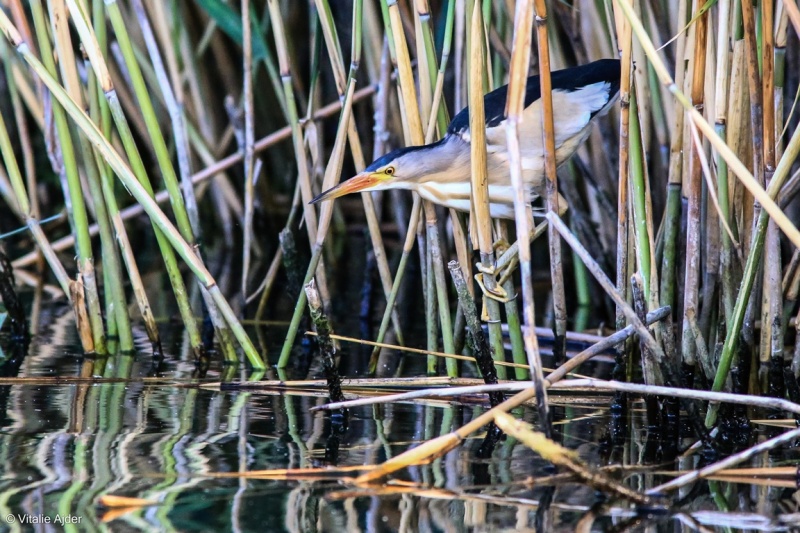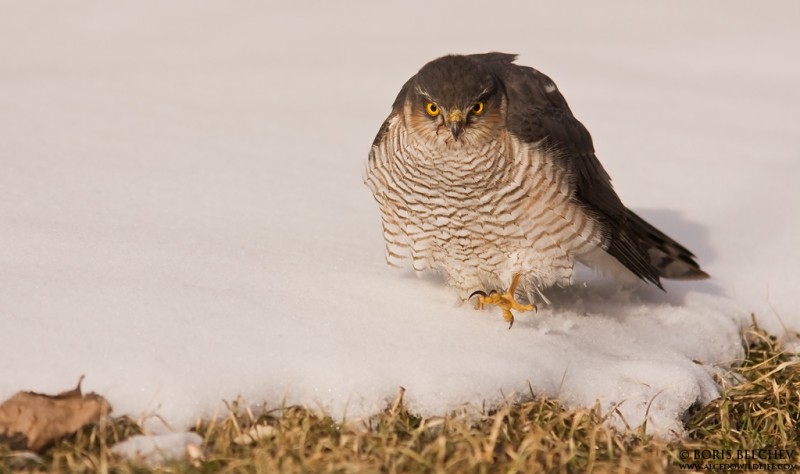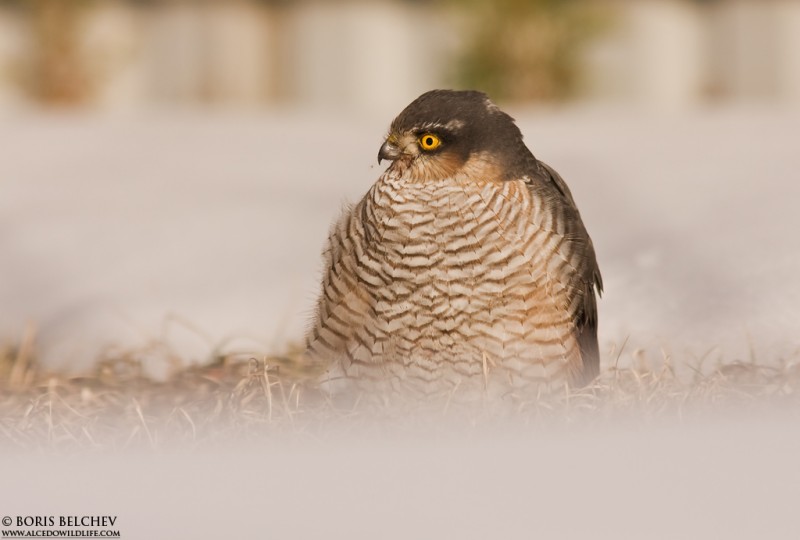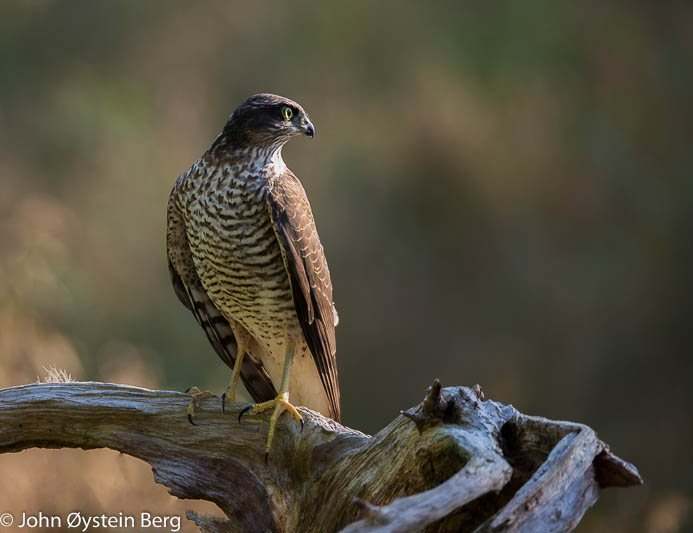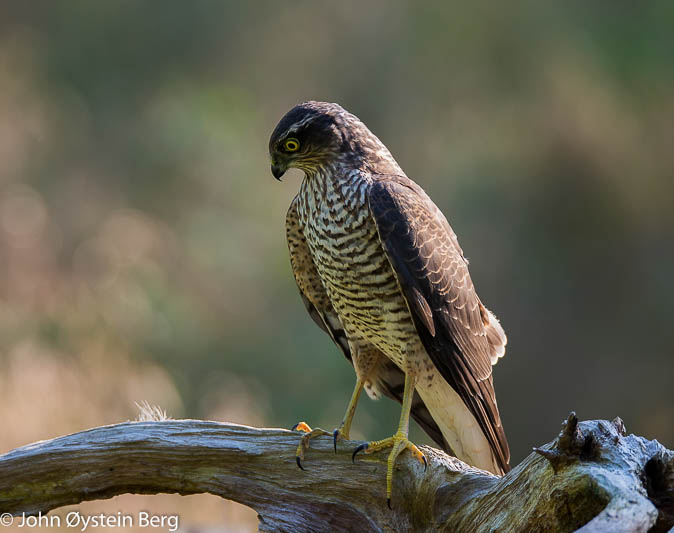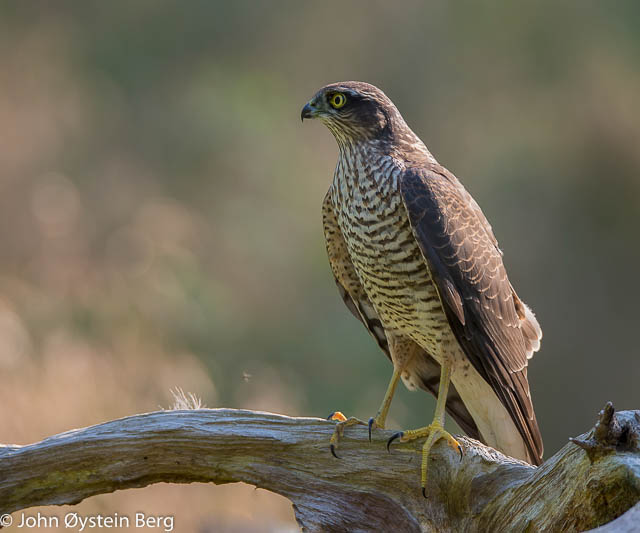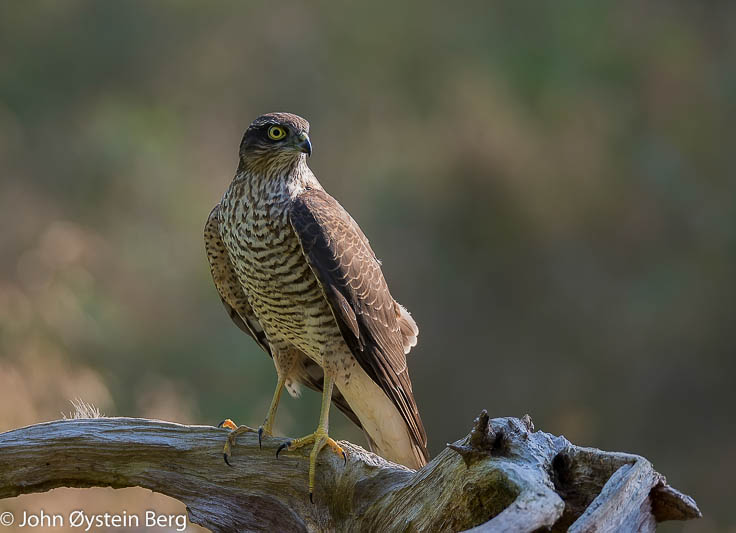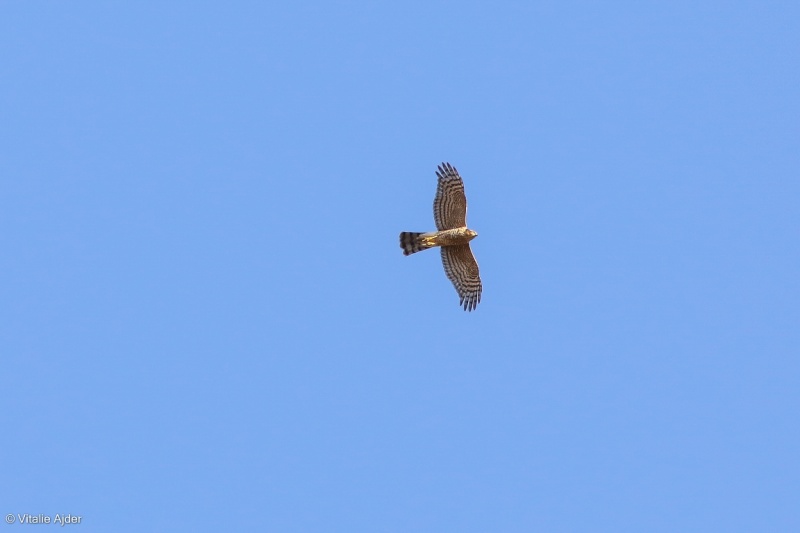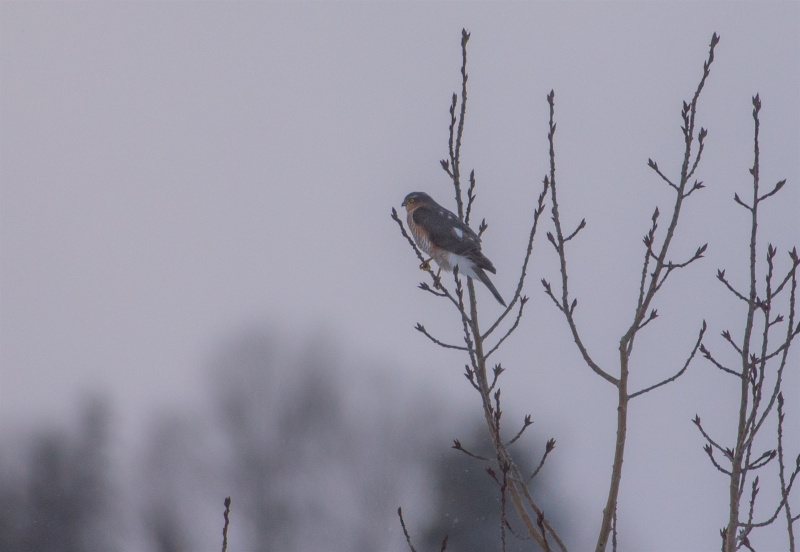Little Bittern (Ixobrychus minutus)
Sparrowhawk (Accipiter nisus)
Usually recognizable by size alone. Distinctly smaller than any congener. Pale wing-panel formed by inner coverts is striking in all plumages, especially in flight. Male with contrasting black and white/buff plumage. Female with dark, but pale fringed back and streaked throat. Immature with streaked, bittern-like plumage, and wing-panel is brown-spotted. Skulky behaviour, and most active at dusk or after dark. Mostly seen in flight when crossing open water. Flight action rapid and clipping, and landing is preceded by short glide.
Sound:Mostly silent except in breeding season. Song is a series of short, deep, frog-like "gorrk", repeated every 2 seconds. Tone is muffled and hollow, but far-carrying. Flight-call a sharp "ki-ke-ke" or a nasal "ke".
Song:
Distribution:
Wikipedia: map (se also Xeno-canto below)
Ecology:Birdlife ecology
Links:
Observation.org Latest observations
Image search Flickr NB! May give other species
CCSound recording:Creative Commons,www.xeno-canto.org,Jarek Matusiak,http://creativecommons.org/licenses/by-nc-sa/4.0/
Small raptor with long tail and short, rounded wings. Quite similar to Goshawk, and female Sparrowhawks may approach male Goshawks in size (female much larger than male in both species). Upperparts grey in male, and brownish in female and juvenile. Underparts barred in buff in male, and brown barring in female and juveniles. Supercilium may be prominent in females. Less bulky than Goshawk, with more slender hips and less deep chest. The sharper corners of the tail is visible when soaring.
Sound:Series of short "ke-ke-ke-ke-ke", with rising pitch. Less resonant and less full than similar call of Goshawk, and much faster. Also a short "peeaaaa", shorter and more squeaky than Buzzard.
Alarm call:
Distribution:
Wikipedia: map (se also Xeno-canto below)
Ecology:Birdlife ecology
Links:
Observation.org Latest observations
Image search Flickr NB! May give other species
CC
 English
English Albanian
Albanian
 Armenian
Armenian
 Bulgarian
Bulgarian
 Catalan
Catalan
 Croatian
Croatian
 Czech
Czech
 Danish
Danish
 Dutch
Dutch
 Finnish
Finnish
 French
French
 Georgian
Georgian
 German
German
 Greek
Greek
 Hungarian
Hungarian
 Italian
Italian
 Latvian
Latvian
 Lithuanian
Lithuanian
 Macedonian
Macedonian
 Norwegian
Norwegian
 Polish
Polish
 Portuguese
Portuguese
 Romanian
Romanian
 Russian
Russian
 Sami : Lule sami
Sami : Lule sami
 Sami : North sami
Sami : North sami
 Sami : South sami
Sami : South sami
 Scientific names
Scientific names
 Serbian
Serbian
 Spanish
Spanish
 Swedish
Swedish
 Ukrainian
Ukrainian


